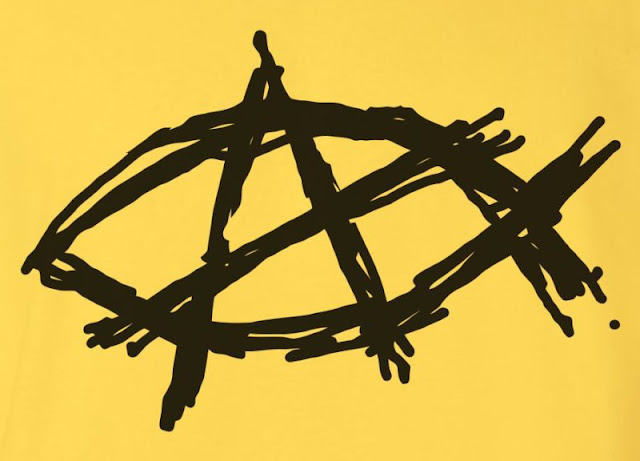"A perfect likeness between Christian and anarchist"
Note: the following post is the first of a planned series on Christian anarchism titled 'The Kingdom of God is Anarchy: Powerlessness as a Christian Practice of Faith'. The below is the first part of the introduction.
”There is a perfect likeness between Christian and anarchist: their object, their instinct, points only toward destruction. […] The Christian and the anarchist: both are decadents ; both are incapable of any act that is not disintegrating, poisonous, degenerating, blood sucking ; both have an instinct of mortal hatred of everything that stands up, and is great, and has durability, and promises life a future.” (Friedrich Nietzsche, Der Antichrist §58)The above quote appears in the German philosopher Friedrich Nietzsche’s The Antichrist from 1895. Nietzsche wrote his famous book in at time when anarchism as a political philosophy was gaining increasing support. Many anarchists were strongly critical of religion in general, but for Nietzsche he fundamental flaw, that characterized both anarchism and Christianity, was their opposition to “the will to power” – the power of life and Man’s fight for creating his own values. For Nietzsche the ideal was the “superman”, the human being who had the guts to stand by his will to power, thereby rising above petty moral considerations and limitations. When anarchism and Christianity came together in rejecting human constructions of power from a radical notion of equality, they were both enemies of everything great and durable – enemies of “life itself”. The Christian exaltation of powerlessness and humility was, for Nietzsche, a consequence of “slave morality”.
Nietzsche criticized Christendom, but even if denouncing ham as a decadent dreamer, he had some respect for Jesus, who he referred to as a “holy anarchist” – in the sense, that Jesus was a political rebel, who inspired poor and marginalized in rejecting the established political order. It was the Christian church, Nietzsche argued, that subsequently put an end to that rebellion, by making an oppressing religion out of Jesus and his teachings. Throughout the 20th century Christian anarchists have further developed the belief, that Jesus in a radical way subverted the political order, and that Christians were to learn from Jesus’ rebellion against the established political and religious status quo. The power-alliance between church and state, the priesthood and the elite of society, is in complete opposition to the anti-authoritarian attitude, that we find in Jesus and parts of the New Testament. Jesus forbade his disciples to rule and to exercise power over each other. From a Christian point of view secular anarchists do right when they reject the authoritarian forms of “Christianity” that we know from church history.

